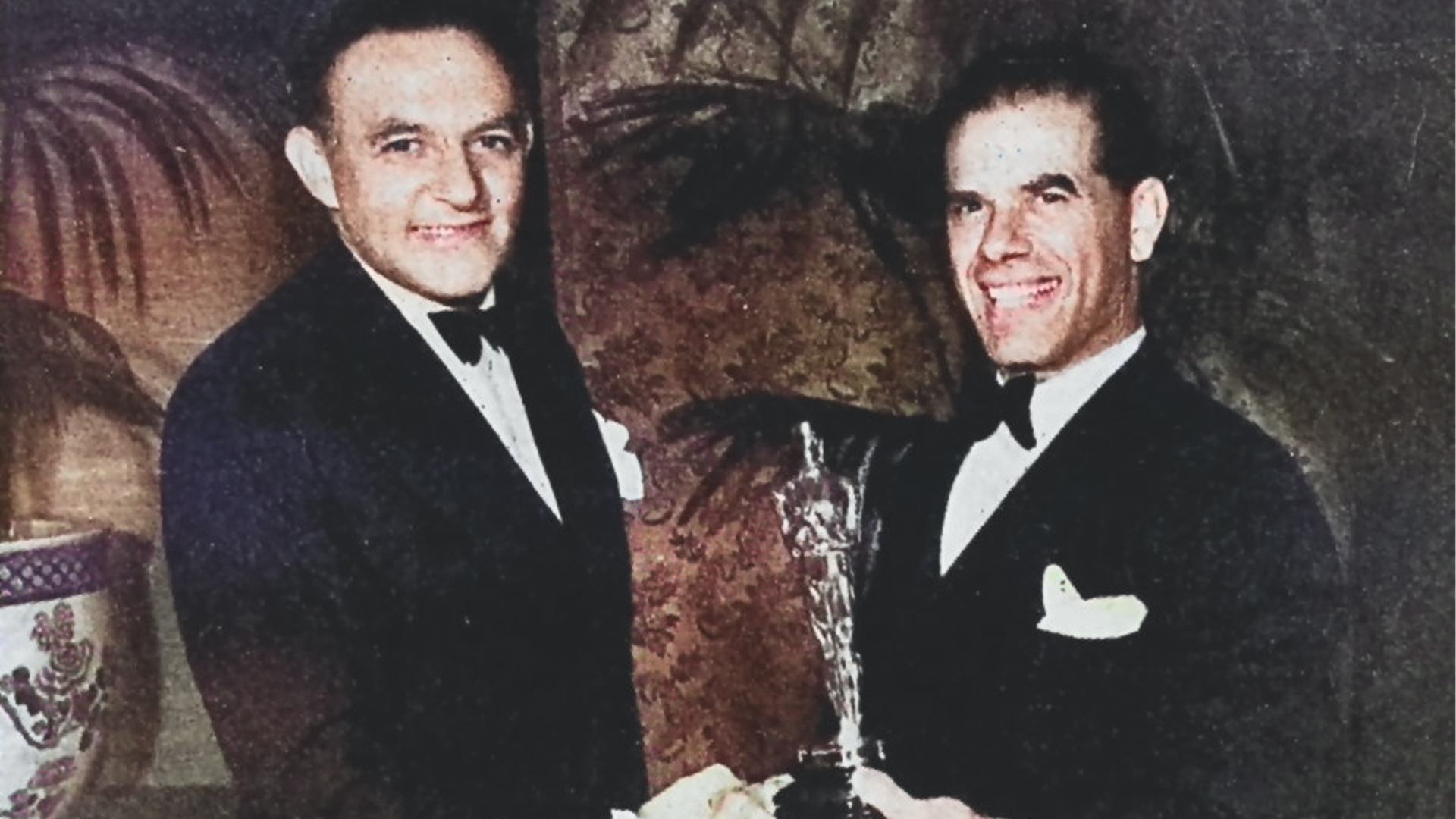Welcome to “Cinema Italiano,” where each month Pete Croatto looks at a movie featuring a prominent person of Italian descent—an actor, a director, whomever. This month, It’s A Wonderful Life, directed by Frank Capra.
How Sicilian-born Frank Capra (1897-1991) became the chronicler of star-spangled charm takes little detective work, thanks to the good people at TCM. Capra emigrated to America as a kid, spending his sixth birthday in steerage with other immigrants on the Germania. He worked odd jobs, including playing banjo in honky-tonks, to make money as a kid in California. His apprenticeship to direct movies lasted years, including making a string of unmemorable, quickie pictures. Capra’s life is the apotheosis of the American dream: anybody can make it if they bust their ass, especially if they’re pure of heart.
That sentiment defines It’s A Wonderful Life, the 1946 holiday classic and his best known film, which has become somewhat overlooked over the past 20 years.

(Photo Credit: Wikimedia Commons)
The reason isn’t the movie itself. The story of small-town good egg George Bailey (James Stewart) learning the impact his life has had on others is now one of seemingly thousands of holiday movies that come out between Thanksgiving and Christmas Day each year. I mean, discovery+ has felt compelled to join the fray.
The holidays in these movies are all romance and second chances and parties that don’t end with sobbing in an Olive Garden bathroom. It's why people gravitate toward the brightly lit, forever snowy holiday fare of basic cable or stand-bys like Elf, A Christmas Story, or National Lampoon’s Christmas Vacation. One of the three is probably airing right now, I suspect it’s because programming experts know it’s a sedative. You can join these movies anytime and get a good-enough whiff of Christmas via edited-for-time familiarity.
Few people, I’m convinced, watch these movies the quote-unquote traditional way—from start to finish, a safe distance from a phone—which is why I’ve developed a renewed fondness for It’s a Wonderful Life. You can’t have it on as a background noise while you wrap gifts. Its nuance and emotional heft compels you to reflect on George’s bittersweet life, one he’s convinced he should end for the benefit of the greater good—until a higher power intervenes on Christmas Eve to show him otherwise.

(Photo Credit: Wikimedia Commons)
For me, at age 45, the movie represents the best that Christmas offers: a time to appreciate what I have. Every year, I succumb to It’s a Wonderful Life, because George (played with everyman aplomb by James Stewart) reminds me of the glory and grace of living an ordinary life and that doing this well takes work. Those irked by the spiritual final act and Uncle Billy’s epic daftness don’t get it. The movie’s center is George’s lifelong quest for more, told in flashbacks until the 24th, which is ours. HIs dreams get delayed, then dashed. Joys emerge and then fade into normal life. His soul gets pummeled by selflessness—taking over his father’s struggling business, then using his wedding money to keep it afloat. Contemporaries soar, but he’s grounded in boring old Bedford Falls, compelled by his do-more nature to keep the miserable Mr. Potter and his endless greed at bay.
It’s a Wonderful Life has ebullient moments that hook you like the aforementioned trio of classics, only you’re led someplace more meaningful. The high school dance, where George and future wife Mary Charleston their way into a pool segues into the death of George’s father and having to take over the saving and loan and have one foot in the quick-setting cement of adulthood and oh man how’s he going to power through this shit? There’s happiness if you wait a bit. Witness any scene with Stewart and Donna Reed, as the luminous and ever-encouraging Mary, especially their makeshift, water-logged honeymoon. There’s enough triumph in George’s life for him to tolerate the ever-growing pile of slights. Sound familiar? Capra, to his credit, doesn’t bathe the scenes in shadows and doesn’t overdo it on the ominous musical cues. He saves the darkness for George’s dark night of the soul, which allows us to properly appreciate his pain while recognizing his good fortune and everyday dignity .
I’m too old for a BB gun. I don’t have the status where lacking an in-ground pool constitutes a family crisis. I’m not an elf with daddy issues. I do feel forgotten or taken for granted, especially as my circle of friends contracts thanks to life’s ceaseless erosion. Given the omnipresence of social media, I suspect this is a universal feeling. It’s a Wonderful Life reminds us that we must forge ahead; we have an impact. It really is the gift that keeps on giving the whole year.
Pete Croatto
Pete Croatto is a freelance writer based just outside of Ithaca, NY. His work has appeared in many publications, including The A.V. Club, RogerEbert.com, The New York Times, The Athletic, Shondaland, Andscape, and GQ.com. He is the author of From Hang Time to Prime Time: Business, Entertainment, and the Birth of the Modern-day NBA. For now, you can find him on Twitter, @PeteCroatto.

